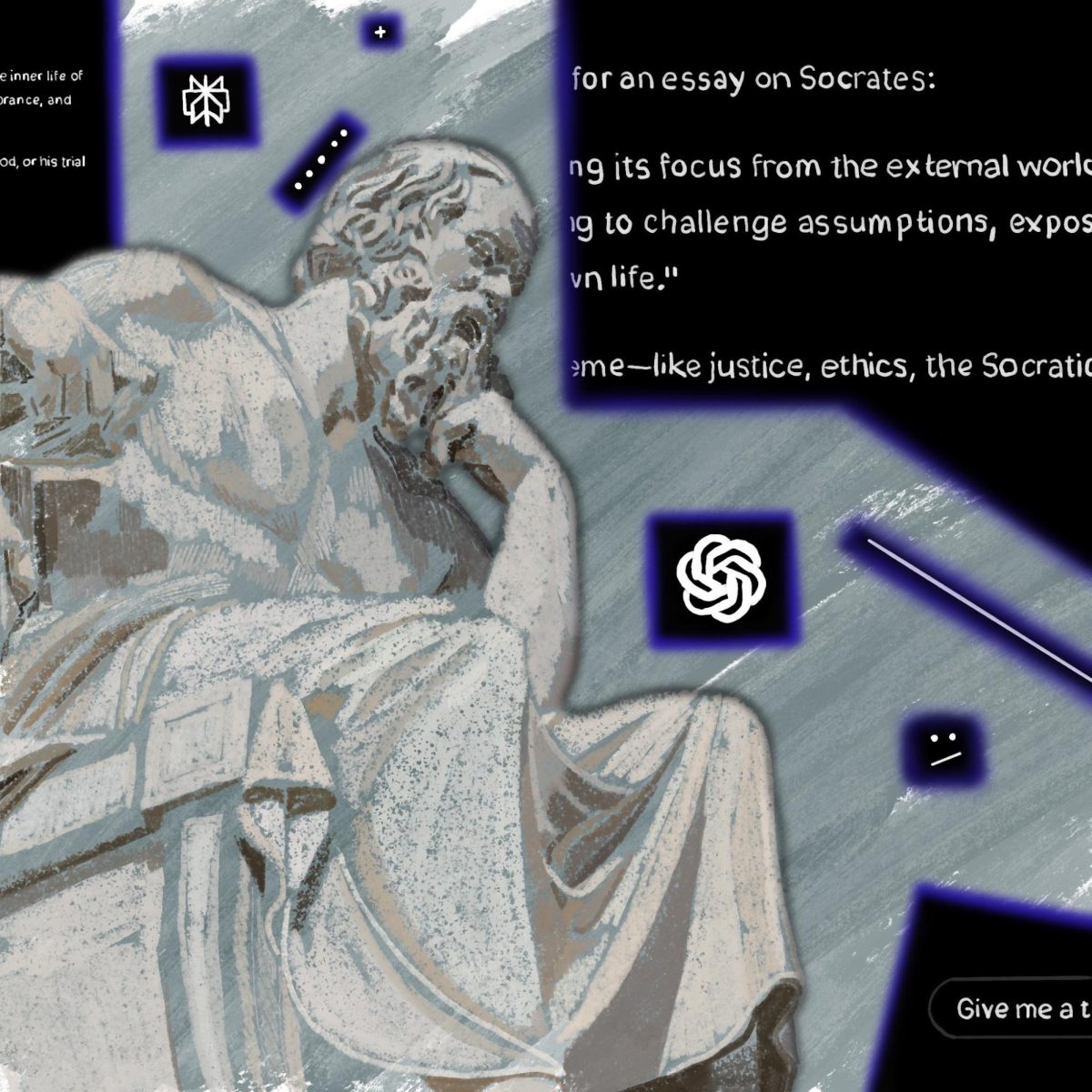A first-year recently asked me whether I had any words of advice to offer as a college senior.
“Don’t do drugs,” I told him. “And wear sunscreen.”
While I still think both pieces of advice were solid, the look of exasperation I got in response was probably justified. Nobody needs to go through four years of college to be reminded to wear sunscreen. So, I feel obliged to give his question another shot in this final column.
Just as people this year have been incessantly inquiring into my post-graduation plans, four years ago I was frequently fielding questions about where I was going to college. Knowing that I was interested in the physical sciences, and knowing their reputation for tough competition, some people suggested that I’d be better reconsider whether I’d be up for the competition. And so, I briefly entertained the idea of picking a major with less baggage before I gathered up the resolve to sign up for the classes I actually wanted to take in college.
Each year in the months of May and June, distinguished people descend upon college campuses to give commencement speeches about how the bold choices they’ve made led them to the success they now enjoy. As inspiring as many of these speeches are, I think it’s a lot easier to conclude that one has made the right choices if one is a globally popular writer, a renowned scientist, or a public figure whose name will be recorded in history books. The odds are long, though, for attaining any of those distinctions. So, as nice as it is to be reassured that we’ll be able to succeed, these speakers also raise the question: How should success be evaluated?
One attitude toward success that I have encountered might be summed up by a sentence oft-repeated by the titular character in the film Talladega Nights: The Ballad of Ricky Bobby: “If you ain’t first, you’re last.” When I was a first-year, I occasionally felt that I was expected to justify my presence in my physics class. Why bother studying something if you know that people are going to be sitting to your right on the bell curve? “Aren’t you intimidated by all the smart people in your section?” a classmate once asked. I dryly told him that I was doing OK.
Certainly there are many winner-take-all scenarios in life, but at least when it comes evaluating to the undergraduate experience, Ricky Bobby’s philosophy falls short. As Ricky Bobby’s father said in response to hearing his philosophy: “You can be second, third, fourth—hell, you can even be fifth.” Imagine if every other scientist decided to pack up and go home after Isaac Newton strolled onto the scene.
With a couple dozen science credits behind me, this is usually the point in the narrative where you would probably expect me to say, “Boy, I sure proved the naysayers from high school wrong.” It would be nice to say so. In reality, though—as cliché as it is—the hard part really hasn’t started yet. Continuing down the road toward a career in academia means that after college, there’s grad school. If that goes well, a postdoctoral position (or two) may follow. If that goes well, a tenure-track position may follow. If that goes well, tenure may follow. And so forth. That’s a lot of “ifs,” and only the cream of the crop makes it past each one. And that means that I’ll have plenty of time to ponder whether I would have been better off had I given more serious consideration during my youth to majoring in accounting. Because taxes, unlike tenure-track jobs, are one of the certain things in life.
College can be anxiety-inducing because it’s really the first time many of us have to make choices that could affect the trajectory of our lives for years to come, when we have to confront the question of “can I ‘make it’ out there?” But whether or not one has been successful is determined by one’s own goals.
Even though I’m the type of person who carries an umbrella around on days with clear skies and plenty of sunshine, I see myself as an optimist at my core. In the end, I think that what will matter a lot to me in the long run is the knowledge that I tried. It may sound facile, but the point of choosing a class is to learn, and learning isn’t zero-sum. Comparisons with others help set the benchmarks to measure how much one has learned, but they don’t, in any way, diminish it. I came to college to learn about some subjects I’d been looking forward to for years, and some that I didn’t even know existed. I learned about point groups and Hermitian operators and core-collapse supernovae. College is not the place to hold back. And so I believe (or at least very much hope) that even if my life takes a rather different direction than the one I’ve been pushing toward, the decisions I’ve made over the last four years have made sense.
Jane Huang is a fourth-year in the College majoring in chemistry.







